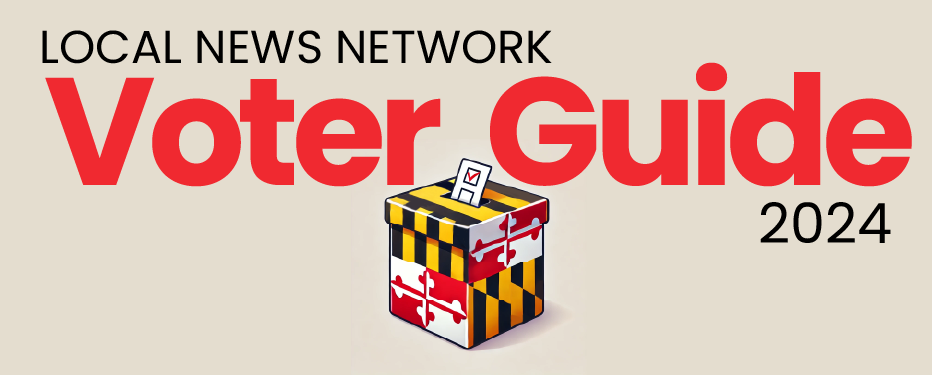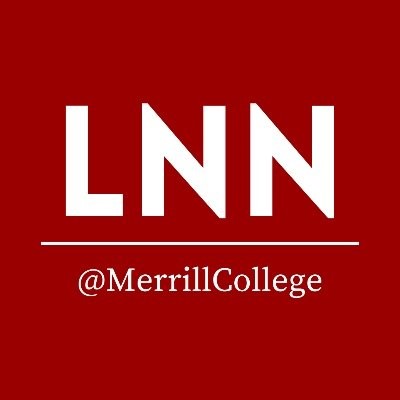Veronica Lowe
Running for school board in Frederick County
How old will you be on Election Day (Nov. 5)?
64
Are you currently employed? If so, where, and what is your job title?
Maryland Department of Transportation-Maryland Transit Administration; deputy director of labor and employee relations.
What is the highest level of education that you completed, and where did you get that degree?
Master’s of business administration with a concentration in leadership studies, Baker College Center for Graduate Studies. Undergraduate degree in human resources.
Why are you running for the school board?
I am running because I believe our children are the future, and if we teach them well, they will lead the way.
I am passionate about making sure that all children have access to an education that will prepare them to be successful adults. Our students and staff need someone like me, who will advocate for them every day.
I am running because I see a need and I believe in service. I want to share my time, talents, skills and experience to serve the school system and to help make a difference, the difference necessary to make the Blueprint for Maryland’s Future a reality.
My presence on the school board will help build a much-needed level of trust within the community — trust that reflects and respects the diverse population of students we serve.
I am running because I am committed to ensuring that all voices are heard and that our schools offer opportunity and support for every child.
What makes you a good candidate for the board?
As the former director of transportation for Frederick County Public Schools, I bring a unique set of experiences and perspectives, resulting in less of a learning curve. I was responsible for managing a $20.5 million budget, so I am well-versed in the budget process. Given that a key responsibility of a board member is negotiating the teachers' contract, my prior role involved negotiating the support staff contract, and in my current position, we oversee and negotiate three unionized contracts.
With a MBA in leadership and a bachelor’s degree focused on human resources, coupled with my experience, I am equipped to make recommendations on how to recruit and retain high-quality, diverse teachers, including the interview process.
Additionally, my previous involvement in redistricting and my strong relationships within the community will garner the support needed for critical initiatives and funding. I am also familiar with the system's processes, including strategic planning, policy setting and the procurement process, to name a few.
In my current role, I handle employee relations for the department, including conflict resolution, coaching and mentoring. I am a second-step hearing officer for grievances and disciplinary actions. I have created and delivered training for management staff.
For more detailed information, please visit my website: www.veronicaloweforfrederickcountypublicschoolsbo.com/
What is the most important issue facing your school board and what would you do about it if elected?
One of the most important issues facing our school board is addressing teacher retention and recruitment, as well as the broader challenge of adequately funding the budget to meet the needs of our schools.
In today’s competitive environment, it’s becoming increasingly difficult to attract and retain high-quality, diverse educators, which directly impacts the quality of education our students receive. Teacher shortages, burnout and increased demands on educators are contributing to this issue, alongside budget constraints that limit our ability to fully support them.
I would also prioritize addressing working conditions, including class sizes, resources, and administrative support, to ensure that teachers can focus on what they do best: teaching.
If elected, I would focus on creating a supportive environment for educators, ensuring they feel valued and supported. This includes advocating for competitive salaries, benefits and professional development opportunities, along with building mentorship programs for new teachers.
We must also address working conditions, such as reducing class sizes and providing adequate resources, to enable teachers to focus on their core mission: educating students.
In terms of budget, I would work to ensure we have the funding necessary to meet these needs, advocating for sustainable sources of financial support while maximizing the efficiency of our current budget. Building capacity within our staff and administration is also essential to ensure long-term success.
Safety is another key concern. I would advocate for improving security measures while fostering a safe, welcoming environment for students and staff. This includes mental health resources and ensuring that safety protocols are in place and effective.
Addressing these issues will help create a stronger, more supportive educational environment for students and staff alike.
Please name a public leader you admire and explain why.
I admire Michelle Obama for her leadership, grace and dedication to improving the lives of others.
As first lady, she championed causes like healthy living with her “Let’s Move” initiative, promoting education through “Reach Higher,” and advocating for military families.
What I admire most is her ability to inspire people, especially young women and girls, to break barriers and pursue their dreams.
Her famous words, "When they go low, we go high," and her call to "Do something" at the Democratic Convention, resonates deeply and serve as powerful reminders to rise above negativity and take action to make a difference.
Michelle Obama’s focus on education, health and equality reflects a deep commitment to creating opportunities for all, and her leadership is both compassionate and empowering. She continues to lead with integrity, staying true to her values and serving as a strong voice for positive change.
The Blueprint for Maryland’s Future, passed by the General Assembly in 2021, is a 10-year plan that includes increased education funding to support early childhood education, increased teacher starting pay, college/career-readiness standards for high school graduates, and expanded services to multilingual and impoverished families, among other goals. Please tell us your views on the Blueprint and how it will affect your school district.
The Blueprint for Maryland’s Future represents a transformative investment in our education system, and I fully support its goals. I believe the Blueprint is a great plan; however, I have concerns about the availability of sufficient funding to support its full implementation over the 10-year period. While increased funding for early childhood education is crucial for reducing achievement gaps, we must ensure that the financial resources are available to sustain these initiatives long-term.
Raising teacher starting pay is another essential component. Competitive salaries and livable wages are key to attracting and retaining high-quality, diverse educators. While our district will benefit from offering fair compensation, without guaranteed funding, this aspect of the Blueprint may face significant challenges.
The Blueprint’s focus on college and career readiness ensures that students graduate with the skills they need to succeed, whether they pursue higher education or enter the workforce. The expanded services for multilingual and impoverished families promote equity in education and create pathways to success for all students. However, without secure funding, these critical initiatives may be jeopardized.
To fully realize the Blueprint’s potential, we must secure sustainable funding sources. As a board member, I would advocate for long-term financial support while seeking creative solutions to maximize available resources. By addressing the diverse needs of our student population and ensuring equitable opportunities, we can create a stronger education system.
The Blueprint will have a profoundly positive impact on our district, and I am committed to working toward its full and effective implementation.
Some school districts nationwide are placing new limits on the use of cellphones in middle and high schools. What do you think should be the policy on student use of cellphones in your district, and why do you support that policy?
I would wholeheartedly support a policy that places limits on cellphone use for all students. However, I don’t believe in creating a policy without fully understanding the issues and concerns that led to its development. We need to gather a collaborative group that includes parents, students, teachers, support staff, administrators, bus drivers and community members to ensure diverse perspectives are considered.
In light of the increase in school shootings, I believe it’s crucial that students have a way to communicate in emergencies. While cellphones can be a distraction that impacts focus and learning, they are also vital for safety. A balanced policy should address the importance of education while recognizing the practical needs of students in today's digital world, promoting both responsibility and safety.
Are you satisfied with your school district's efforts to ensure the safety of its students? What, if anything, should be done to improve school safety in your district?
While I appreciate the steps our district has taken to ensure student safety, I believe we can always do more. We need to prioritize better communication between schools and families, and ensure staff receive ongoing safety training. Mental health resources are crucial, and we should focus on expanding support to help identify and address issues early.
We need to continue strengthening our partnerships with local law enforcement and increase the presence of security personnel where needed. It's also important to ensure that school resource officers working with our students have the right temperament to foster a safe and supportive environment without making schools feel unwelcoming.
Additionally, upgrading security technology, such as surveillance systems and emergency alerts, would be a smart investment. Ultimately, we need to collaborate with students, parents, staff and the community to stay ahead of potential safety concerns and ensure our schools are as safe as possible.
Do you think there are circumstances when books should be removed from school libraries? If so, what kind of books should be removed, and who should make those decisions?
Yes, I believe there are circumstances where books should be reviewed and, if necessary, removed from school libraries, particularly if they contain content that is clearly inappropriate and not suitable for the age group.
However, this should not be done arbitrarily; it should be handled thoughtfully and transparently. Decisions about removing books should follow the current Board Policy 500, which involves a diverse review committee that includes educators, parents, students, administrators and community members.
This ensures that books are evaluated fairly and with consideration of both educational value and the community's values. It is important to strike a balance between protecting students from harmful content and maintaining access to diverse perspectives and ideas that foster critical thinking and personal growth.
Some school districts enact policies allowing transgender and gender nonconforming students to use their preferred pronouns while at the same time not informing those students' parents about that decision. What is your opinion of such policies?
I support Frederick County Public Schools Policy 443 (which aims to create welcoming and affirming schools for transgender and gender nonconforming students).. I believe that every student deserves a safe and supportive environment at school, including the use of their preferred pronouns.
However, the relationship between schools and parents is critical, and transparency is key to building trust. While it’s important to respect students' identities, schools should also strive to engage parents in a way that is sensitive to each student's needs and safety. If a student feels uncomfortable discussing their gender identity with their family, schools should provide appropriate support and resources, while encouraging open communication when it is safe to do so.
Ultimately, policies should prioritize the well-being of students, balancing their privacy and safety with parental involvement in a thoughtful and respectful manner.


